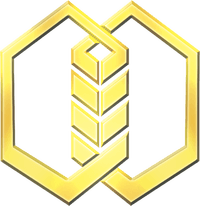Project Title: The Digital Blue Carrier for a Post-Carbon Future – Curriculum Innovations in Aquaculture (DiBluCa)
The DiBluCa project is proudly funded under the Erasmus+ program, a flagship initiative of the European Union supporting education, training, youth, and sport across Europe. Erasmus+ aims to foster innovation, collaboration, and mobility to create a European Education Area that addresses global challenges through inclusive and sustainable solutions.
By supporting the DiBluCa project, Erasmus+ demonstrates its commitment to enhancing higher education’s digital and green capabilities, promoting environmental sustainability, and strengthening cooperation between EU and non-EU countries. This initiative aligns with key EU priorities, including the Green Deal, the digital transformation of education, and fostering collaboration with Ukrainian institutions to address the impact of the war.
Through Erasmus+ funding, the DiBluCa project will bring together leading universities and experts from Lithuania, Türkiye, Croatia, Greece, and Ukraine to develop innovative curricula and tools that will shape the future of aquaculture education and contribute to a more sustainable, climate-resilient Europe.
Relevance:
The DiBluCa project addresses critical global challenges, including climate change, environmental sustainability, and the need for innovative education in aquaculture. With the world’s population projected to reach 9.5 billion by 2050, aquaculture is increasingly recognized as a solution to global food security. However, global warming impacts aquatic ecosystems, altering water quality, species migration, and productivity. These changes necessitate immediate adaptation in aquaculture practices and education to ensure sustainable growth in this sector.
The project aligns with European priorities, including the EU Green Deal, the Water Framework Directive, and efforts to enhance digital and green capabilities in higher education. It also responds to the effects of the war in Ukraine, emphasizing the importance of international cooperation and the inclusion of Ukrainian expertise in addressing shared challenges.
Role of Ukraine:
Ukraine plays a pivotal role in the project as a key contributor to the development of innovative aquaculture education. The inclusion of Odesa National University of Technology (ONUT) ensures the integration of Ukrainian expertise in aquaculture, particularly in adapting to climate change and advancing digital education. The project also aims to strengthen Ukraine’s academic and professional ties with the EU, supporting the country’s broader aspirations for European integration.
ONUT will lead efforts in designing curriculum modules focused on global warming’s impact on aquaculture, including innovations in breeding and biotechnology. The collaboration with Ukrainian institutions highlights the importance of resilience in the face of crises, ensuring that aquaculture education and research continue to evolve despite challenges such as the war.
Objective:
The primary aim is to develop a comprehensive and innovative curriculum for aquaculture higher education, preparing professionals to address the challenges of climate change and overfishing. It seeks to enhance digital education methods and integrate sustainability into aquaculture training.
Tasks:
- Create modern training materials and an innovative curriculum.
- Develop a digital learning platform with interactive modules.
- Host workshops, pilot programs, and an international conference.
- Publish a handbook and e-book on sustainable aquaculture practices.
Expected Outcomes:
- New curricula tailored to address climate challenges in aquaculture.
- Increased knowledge and skills for students, educators, and industry professionals.
- A collaborative digital platform to facilitate education and resource sharing.
- Greater employment opportunities and sustainability in the aquaculture sector.
Duration: November 1, 2023 – October 31, 2025
1 DiBluCa_Pedagogical methodology_Final
WP2A3-Curriculum development.UNIDU – Final version
WP2A1-SoA General Report EN.docx
the Third Transnational DiBluCa Project Meeting
The duration of the project is from 01.11.2023 to 31.10.2025.
More information about the project https://dibluca.vdu.lt/
